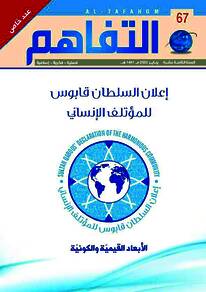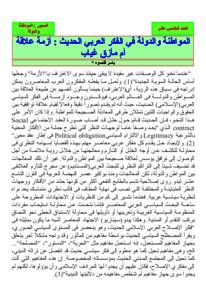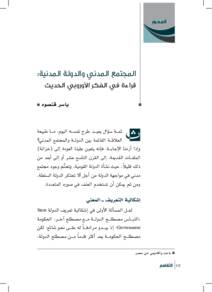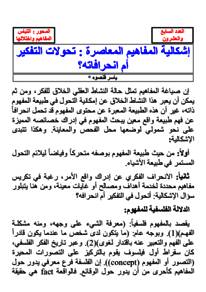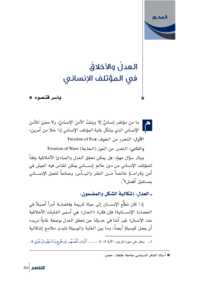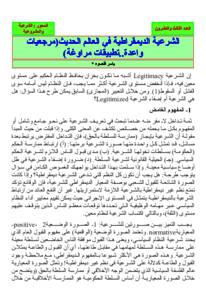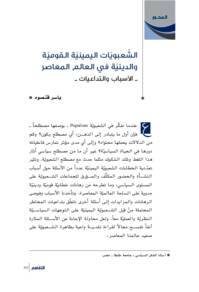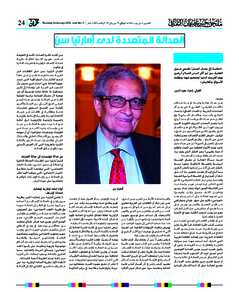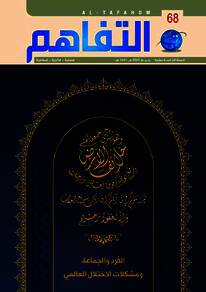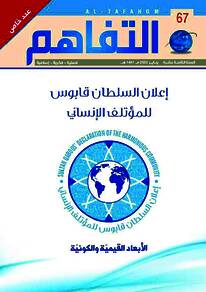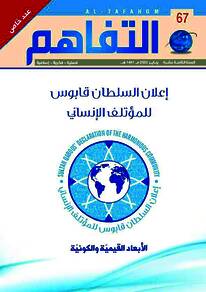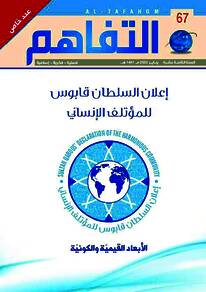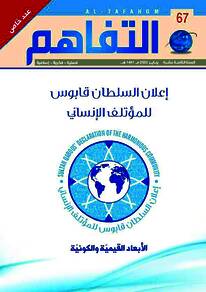وثيقة
العدل والأخلاق في المؤتلف الإنساني.
الناشر
وزارة الأوقاف والشؤون الدينية.
ميلادي
2020-01
اللغة
العربية
الموضوع
الملخص الإنجليزي
There is no human collaborator who does not seek human security, and there is no meaning to human security, which is the goal of the human collaborator, if it is devoid of two things: the first: freedom from fear, and the second is freedom from want (need) and freedom of want. An important question arises: is it possible to achieve justice and principles? Ethical according to the human consensus, without a human world in which people can live in security and dignity, free from poverty and despair, and creating humanitarian work for a better future?! Justice: the problematic of form and content if man's aspiration to a decent and virtuous life is an inherent matter in human civilization; The idea of "justice" is the highest moral goal for man. However, when we talk about achieving justice as an end, we want it to work as a means as well, and between the end and the means, the features of the problem of justice appear in form and content.
المجموعة
URL المصدر
الملخص العربي
ما من مؤتلف إنسانيّ إلا وينشد الأمن الإنساني، ولا معنى للأمن الإنساني الذي يشكّل غاية المؤتلف الإنساني إذا خلا من أمرين: الأول: التحرر من الخوف Freedom of Fear والثاني التحرر من العوز ( الحاجة) Freedom of Want ويثار سؤال مهم: هل يمكن تحقق العدل والمبادئ الأخلاقية وفقاً للمؤتلف الإنساني من دون عالم إنساني يمكن للناس فيه العيش في أمن وكرامة خالصاً من الفقر واليأس، وصانعاً للعمل الإنساني بمستقبل أفضل؟!. العدل : إشكالية الشكل والمضمون إذا كان تطلُّع الإنسان إلى حياة كريمة وفاضلة أمراً أصيلاً في الحضارة الإنسانية؛ فإن فكرة «العدل» هي أسمى الغايات الأخلاقية عند الإنسان؛ غير أننا في حديثنا عن تحقق العدل بوصفة غايةً نريده أن يعمل كوسيلة أيضاً، وما بين الغاية والوسيلة تتبدى ملامح إشكالية العدل الماثلة في الشكل والمضمون.
قالب العنصر
مقالات الدوريات

